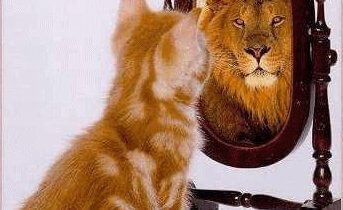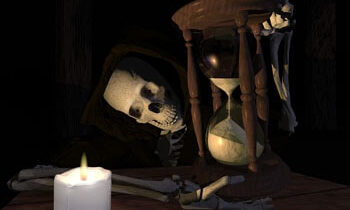Is home ownership asset or liability? The answer is not so straightforward, and may be either or both.
The reason is many don’t own their home outright. If you have a mortgage and make payments, it goes on your taxes as a liability. However, everyone needs to eat and sleep somewhere and it’s nice not to have to pay for someone else’s mortgage through rent.
You can also build up equity in the home, which can help you refinance for extra cash and use it to invest elsewhere.
If you do not have a mortgage, and own the property outright then it’s stated as an asset, because it has value, and may even be worth more than you paid for it.
So the answer is - it depends on who really owns it (you or the bank), how much you paid for it, and how much it’s worth today.
Home Ownership Asset or Liability: Is owning a home a good idea?
 As far as being a good idea to own a home, it kind of depends on what you own, where it is located, and how much it costs to rent a house nearby.
As far as being a good idea to own a home, it kind of depends on what you own, where it is located, and how much it costs to rent a house nearby.
If you buy a house in need of repairs, or in a lousy neighborhood, or paid a high price, or have to drive a long way to work, then it’s probably a lousy idea to own that house, and thus a liability to you.
However, if you are near your work, or got a good price, or bought a decent house in a good neighborhood, then it’s probably a good idea to own that house, and thus becomes an asset.
Also if rent is so low in the area you want to live when compared to a mortgage payment, then it’s probably a good idea to save on the mortgage payments, and put your money to work elsewhere.
Home Ownership Asset by buying a house in foreclosure or short sale.
When it comes to real estate the truth is banks technically own most properties. When you get a loan on a property, car, or other large purchase, the bank keeps the ownership papers, which they sign over to you when you finish paying the loan. If you stop making payments, the bank has the right to take ownership of the property.
 Foreclosure
Foreclosure
A foreclosure is when a bank or lending institute takes back a property when someone is unable or unwilling to make the payments on their mortgage. This process is called foreclosure, and typically will not start until someone is 3 months behind on payments.
The laws change state-to-state, and country-to-country, and some states allow the bank to come after the previous owner for the balance of what is owed after the property is resold. The foreclosure typically takes a few months, to a few years to complete.
Some institutes will work with you to refinance, or to change the conditions of your loan to help you make your payments. When a property is foreclosed on, the bank will typically try to sell it right away, and list the property as a “bank owned” property. When it comes to home ownership asset or liability, a house is definitely a liability in this situation.
Short Sale
A short sale is when a previous owner can sell the property before it’s foreclosed on. This allows the bank to sell the property, while the owner is released from the obligations of a legal foreclosure (which goes on their financial records). The problem with the term short-sale is a short-sale can take a long time to process.
This is because different, more complex rules apply to short sales which include - the previous owner or renter may still live in the property, the bank has to decide if they want to sell to the new buyer at a lower price, new buyer has to process many legal documents and prove they can afford the property etc.
Now whether or not to buy one of these is pretty much dependant on all the information talked about in the beginning. However in foreclosures and short sales sometimes the bank is willing to lose some money and let the house go for less than the home is worth. In these cases, it might be worth while.
Home Ownership Asset or Liability Conclusion
 As far as owning a home it typically is a great idea if you plan to stay in one area for a longer period, and can negotiate a price below the market value. Typically, over time, your house can become a great asset for you. However, if you have to go into deep debt and are unable to sustain the payments then it’s a big liability. This will probably set you back a bundle, ruin your credit and make life not so enjoyable.
As far as owning a home it typically is a great idea if you plan to stay in one area for a longer period, and can negotiate a price below the market value. Typically, over time, your house can become a great asset for you. However, if you have to go into deep debt and are unable to sustain the payments then it’s a big liability. This will probably set you back a bundle, ruin your credit and make life not so enjoyable.
Home ownership is basically an asset to you if it increases in value over time, and the sooner you own it outright the better. Home ownership becomes a liability when the house is worth less than you own, or you cant maintain mortgage payments or it costs you more to maintain in the long run than its worth. However owning a home is still a great idea if you plan to live somewhere for an extended period, or if you want a stable place to raise a family.
For more information visit our 3 part series on Buying a Home.
Buying a Home 1: Understanding Real Estate
Buying a Home 2 - Realtors, Escrow, Appraisals, Assessments
Buying a Home 3: Refinance, Foreclosure, Making Money in Real Estate



